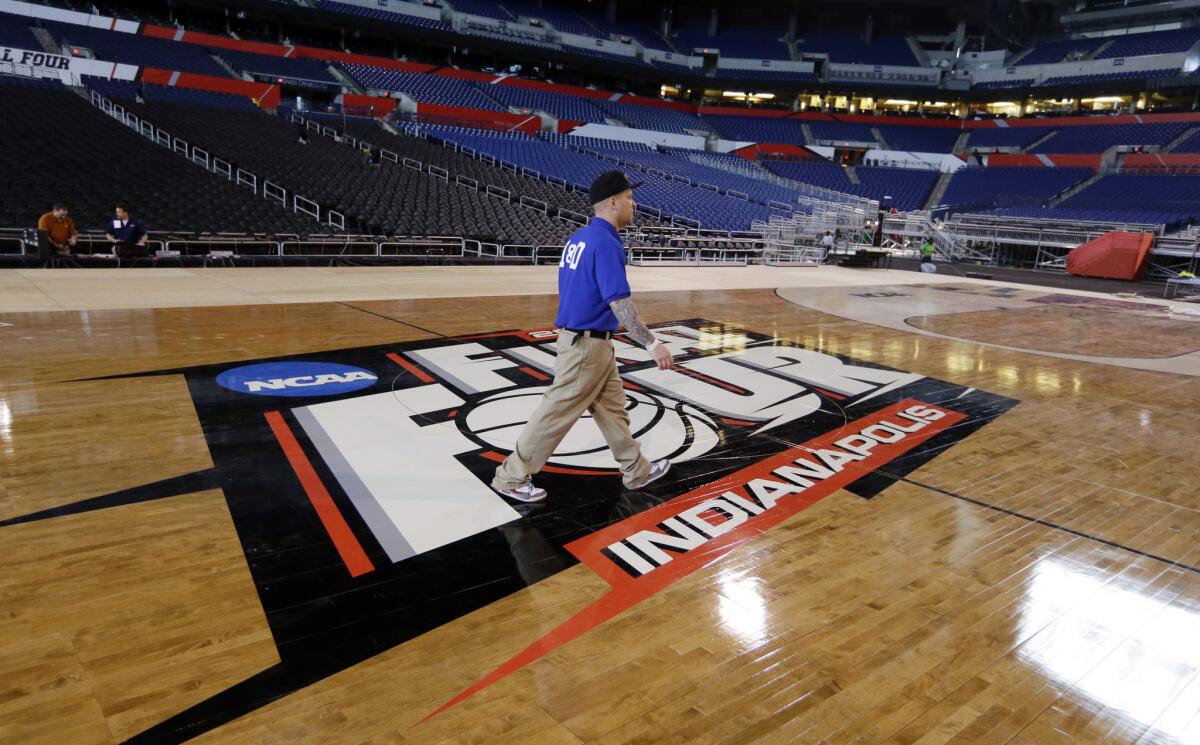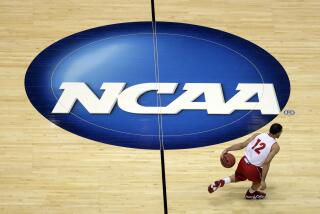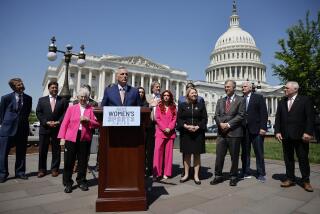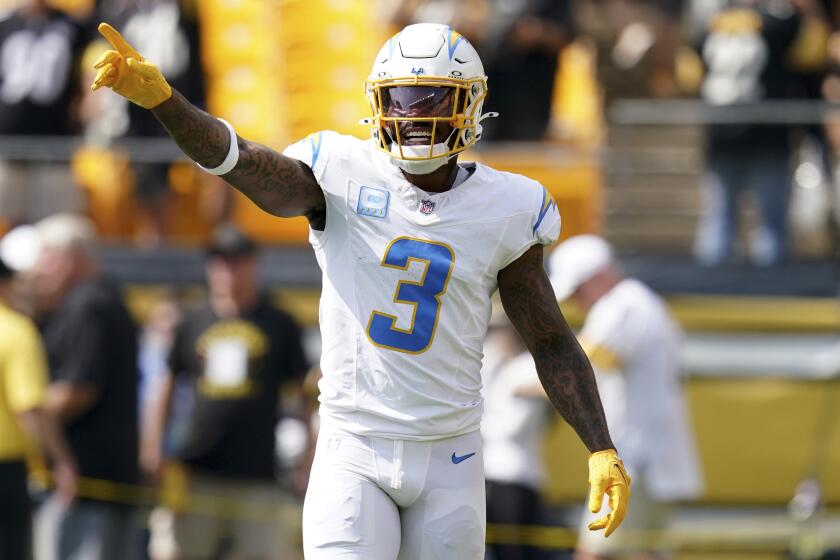NCAA feeling pressure to take stand against controversial Indiana law

A worker crosses the NCAA Final Four center court logo in Indianapolis where there is growing pressure on the NCAA to take a stand against controversial Indiana law.
This is usually a happy time of year for college basketball, a chance for the game to take center stage with all eyes focused on March Madness.
But just days before the Final Four tips off in Indianapolis, the mood surrounding the tournament has turned serious.
With both its title game and its headquarters located in Indianaâs capital, the NCAA is facing widespread pressure to take a stand against a hotly debated state law that many fear will lead to discrimination against gays and lesbians.
The outcry has come from a range of voices, with current and former players â including Charles Barkley and Reggie Miller â joining gay rights groups in a call to action.
Some want the NCAA to relocate its offices. Others have suggested switching the Final Four to an alternate city at the last second.
âI would say the NCAA is in a bind because itâs hard to pick up stakes and move,â said Paul Swangard, managing director of the Warsaw Sports Marketing Center at the University of Oregon. âBut there are steps that can be taken.â
It was just last week that Indiana Gov. Mike Pence signed SB 101, which prohibits âsubstantially burdening a personâs exercise of religion.â Critics worry the law will allow business owners to cite their beliefs in denying service to gays and lesbians.
Reaction has been swift, with corporate leaders such as Apple Chief Executive Tim Cook and Yelp Chief Executive Jeremy Stoppelman decrying the legislation. The Internet site Angieâs List canceled plans for expanding its Indianapolis headquarters just days before groundbreaking.
Last week, the NCAA issued a statement saying that it was âespecially concernedâ about SB 101 and would âclosely examine the implications of this bill and how it might affect future events as well as our workforce.â
At a time when Mark Emmert might otherwise be talking about seedings and last-second baskets, the NCAA president made a Monday television appearance, saying he was âsurprised and disappointedâ that the bill moved so quickly through state legislature.
âI expected the NCAA to feel the pressure,â said Richard Lapchick, director of the Institute for Diversity and Ethics in Sport at Central Florida. âThey have a moral obligation ⌠to come up with something that can be a powerful influence.â
With the exception of certain individual athletes, sports in America have traditionally kept their distance from social issues, Lapchick said. But there has been a gradual shift toward activism over the last 20 or so years.
Concerned that Arizona voters rejected a 1990 referendum to recognize Martin Luther King Day, the NFL subsequently shifted the 1993 Super Bowl to Los Angeles.
In 2001, the NCAA stopped holding championship events in South Carolina and Mississippi because those states flew Confederate flags at their Capitols. Several years later, the association targeted schools that had Native American mascots.
Lapchick considers the ouster of Clippers owner Donald Sterling, who was banned from the NBA last spring after making racially insensitive remarks, as a watershed moment.
âThat was groundbreaking,â Lapchick said. âI think weâre in a time when the players are going to call on officials to take action.â
Not everyone in college basketball has joined in the debate over SB 101. Last week, before his teamâs regional final at Staples Center, Wisconsin Coach Bo Ryan sidestepped questions about the law.
âIâve been looking at game film the whole time Iâve been here, so Iâm not responding to that because I donât know what youâre talking about,â Ryan said.
But college and pro sports executives have felt growing economic pressure to address hot-button issues.
âThe leagues and the sports properties find it more appropriate than ever to take a firm stand when these types of issues come up,â Swangard said.
On Monday, Indianapolis Colts owner Jim Irsay tweeted that his football team âhas always embraced inclusiveness, tolerance and a diverse fan base.â The NBA similarly issued a statement last week, expressing commitment to âprinciples of inclusion and mutual respect.â
Cyd Zeigler, co-founder of Outsports and a member of the LGBT Sports Coalition, appreciates the sentiment but calls such reactions âa cop-out.â
âThese inclusion statements are nothing new,â he said. âThey take no position on the law whatsoever.â
The coalition has not joined with demands that the NCAA move its headquarters or this weekâs Final Four. Nor does it expect any existing sports entities to pick up and leave.
âWe know the University of Indiana isnât going anywhere,â Zeigler said. âWe know Notre Dame isnât going anywhere.â
The group has focused instead on future events.
It has asked the NCAA to consider moving the 2016 Womenâs Final Four out of Indianapolis. It also wants the NFL to consider relocating the annual combine and the Big Ten to look elsewhere for next seasonâs football championship game.
âSports can change laws,â Zeigler said. âIf the NCAA and the NFL and the Big Ten all announce they are withdrawing from the state of Indiana, the state of Indiana will change its law.â
More to Read
Go beyond the scoreboard
Get the latest on L.A.'s teams in the daily Sports Report newsletter.
You may occasionally receive promotional content from the Los Angeles Times.











